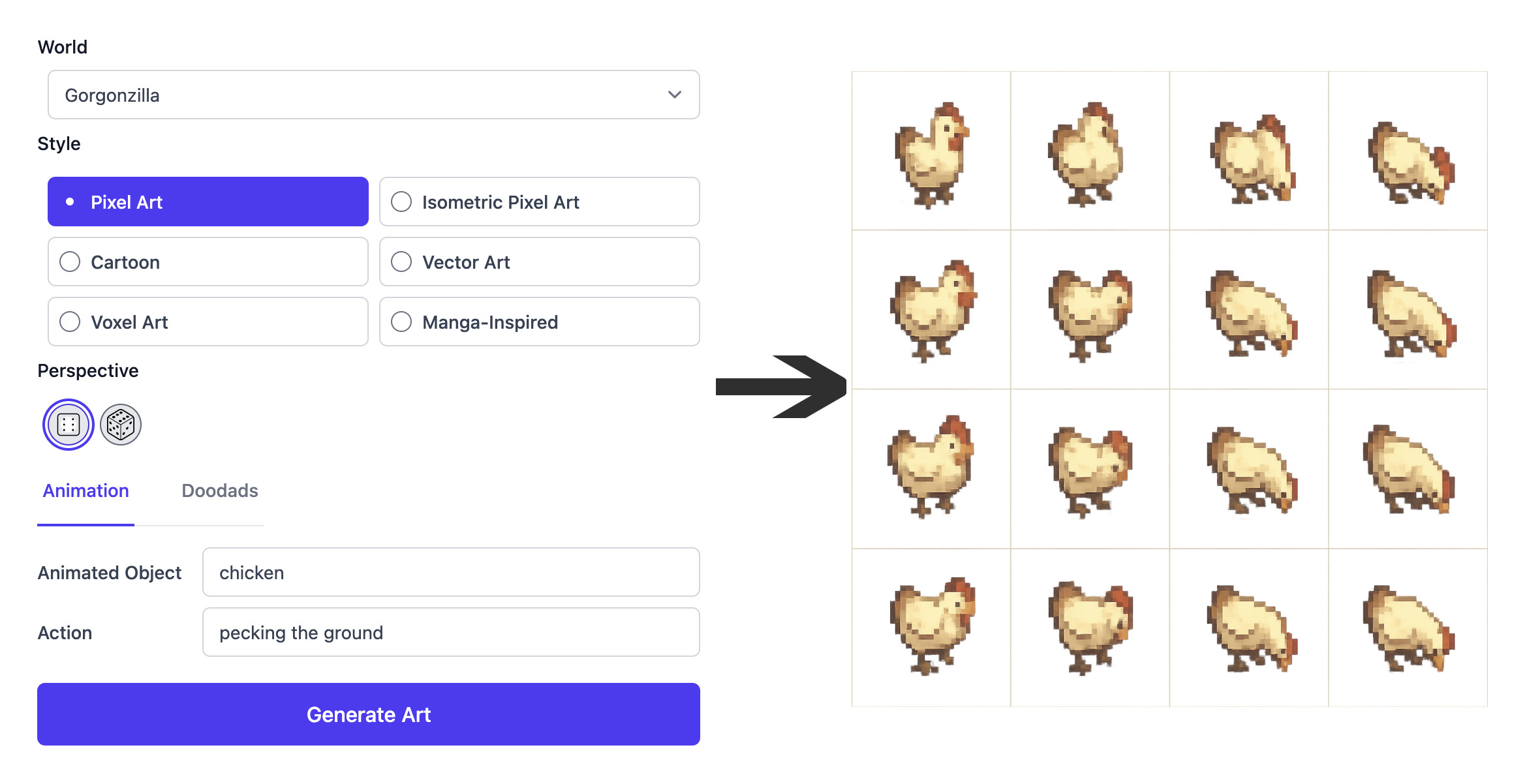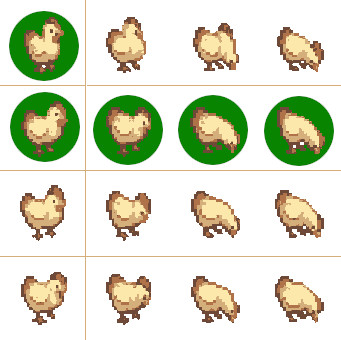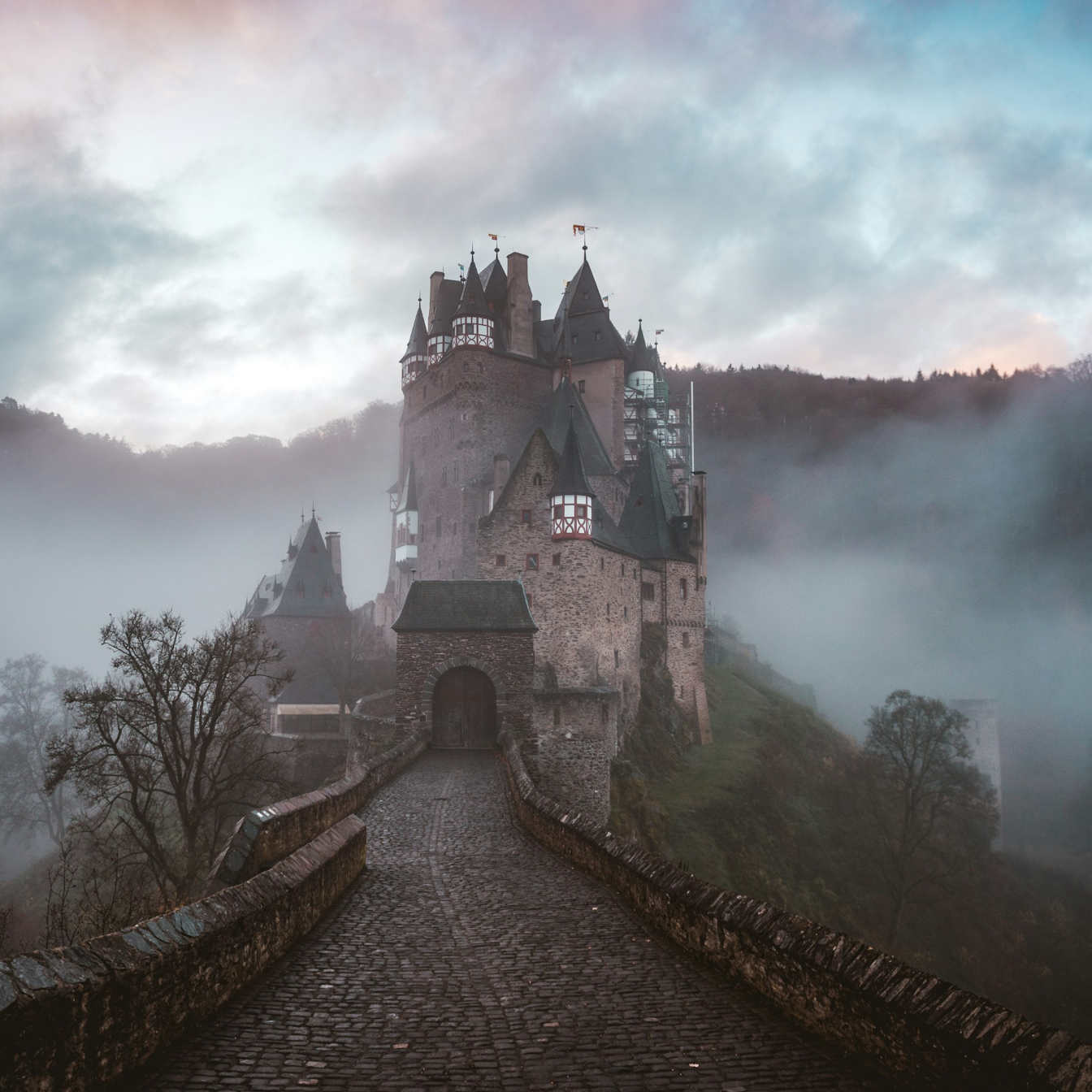How to Turn AI-Generated Art into a Pixel-Perfect Game Sprite
Creating game sprites used to take hours of painstaking work, drawing frame by frame, tweaking pixels, and hoping the animation felt right. AI-generated art enables you to create a whole sprite sheet in seconds, but it still takes some effort to get it pixel-perfect and ready to use in a game. In this post, we’ll show you how to take AI art and transform it into a polished asset that moves fluidly, letting you focus on building your game instead of wrestling with every frame.
Generate Your Sprite Sheet
Open the Art Maker, fill in the fields with what you want, and hit generate.
In just a few moments, you’ll have a full sheet of frames you can work with.

Clean It Up
AI-generated sprites can sometimes look blurry or too smooth. If you want to make them feel like authentic pixel art, you’ll want to sharpen them up.
To use Unfaker:
-
Upload your generated sprite sheet.
-
Adjust the settings until the pixels look sharp and defined.
-
Export the result.
Now your sprite has defined pixels like the retro games we’re used to.
Pick the Best Frames
Not every frame will be a keeper. Some might look awkward, others may not match the motion you want.
This is where you decide which frames to use. For the chicken example, the best animation loop came from just five frames.

Slice and Arrange
Next, you’ll cut the good frames out and put them into order. Then make the final sprite sheet using the sprite sheet maker.
At this point, you’ve turned raw AI output into a usable sprite sheet.

Animate Your Sprite
The final step is importing your sprite into a game engine and setting it in motion:
-
Load the sheet into Unity, Godot, or your engine of choice.
-
Define the frame duration.
-
Loop the frames.
And just like that, your sprite is alive.
Start Making Assets
Recommended posts
We have similar articles. Keep reading!
Learn how to run a sandbox TTRPG campaign with zero prep using random tables. This guide shows how to quickly build towns, NPCs, and story hooks on the fly, freeing you to react and improvise with confidence. Includes tips, examples, and a printable Town Starter Kit to get started fast.
You've got a session tomorrow, and you're short on time. Prep can be a daunting part of running a game, but what if you could cut your prep time in half and still deliver compelling sessions? Enter: random tables.
Tools help you make great maps. But the story is still up to you. A map is not just a backdrop. It is the spine of your narrative. This post shows how to turn locations into narrative hooks for your game, novel, or campaign.










